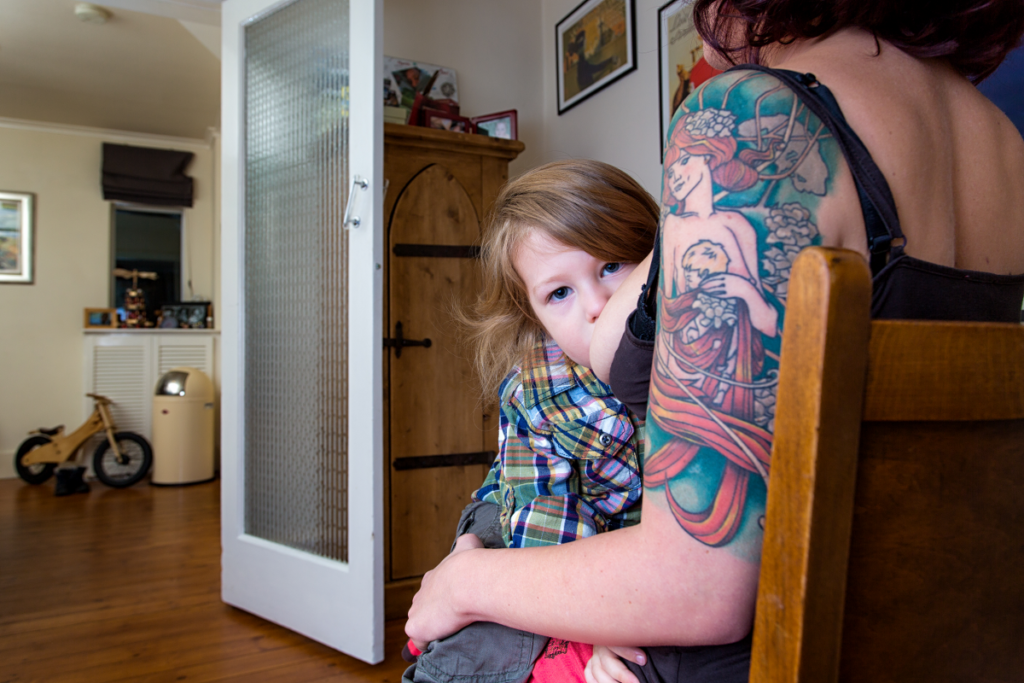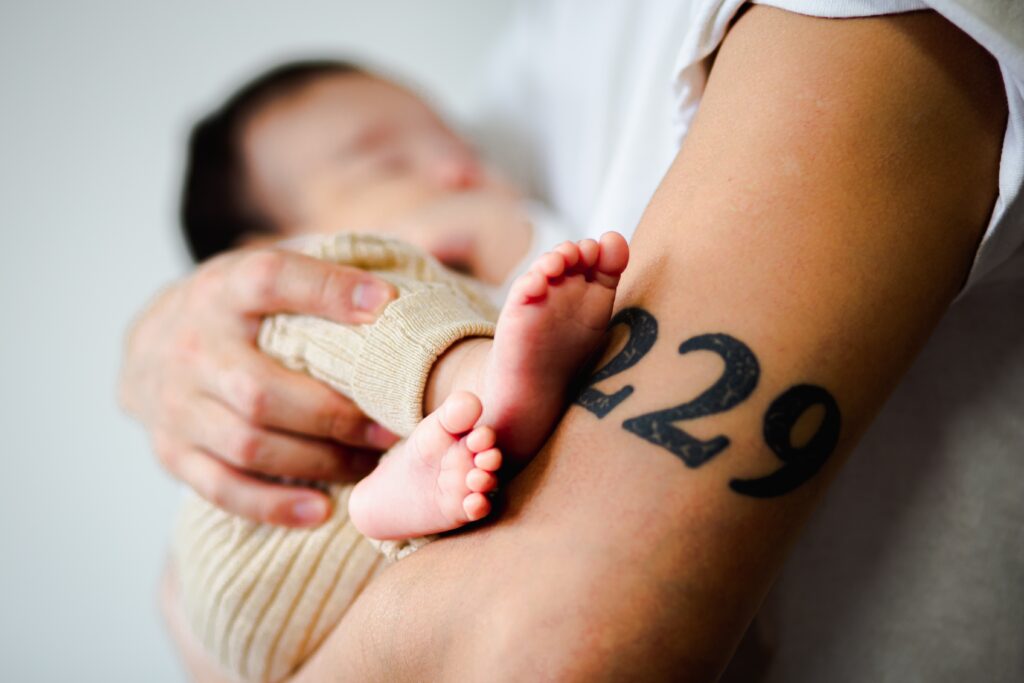Can I get a tattoo while Breastfeeding?
The Naked Truth: Tattoos + Making Milk
Just like every other decision we make for ourselves during the perinatal period; that glass of wine, eating soft cheese and sushi, continuing to run during pregnancy, hiring a doula, postpartum visitors and on and on, the decision is yours. The short answer is hell yes! The longer answer is for you to weigh your options and then make the decision that is best for you.
I am obviously biased because I am a milk enthusiast + an ink enthusiast. I breastfed my 3 children for a combined 12 years and I have over 20 tattoos, many of them acquired during lactation. That’s a lot of milk & a lot of ink! I did my own research (spoiler alert: there isn’t a lot), and made my own decisions.

What is in a tattoo?
The truth is that there are still unknowns when it comes to tattoo safety & lactation. What we do know is that body modifications including scarring, tattooing, piercing & branding have been performed worldwide for the past 5000 years.
Tattoos are created by injecting ink into the 2nd layer of the skin, the dermis, with needles where it gets trapped. What actually traps it you might wonder? A study from 2019, complete with tattooed mouse tails, looked at why ink persists in this skin layer despite constant skin cell rejuvenation.
Macrophages, white blood cells regulated by the immune system, actually eat up the tattooed pigment, technically known as phagocytosis, thus keeping it trapped in place. When that white blood cell – the tattooed macrophage if you will – dies, it then transfers it’s pigment into the newer one, thus your design lives on forever.
Anyone with older tattoos knows that there is a certain amount of fading over the years; apparently your immune system is working really hard to break down that tattoo over time – trying to undo some of the mistakes your mom warned you about in the first place.
Inks used for tattoos are regulated by the FDA, but are not approved for injection under the skin and they can contain heavy metals. There are also synthetic and vegan inks for tattoo artists to choose from. It is not definitively known if it is harmful to humans or not, but ink particles have also been collected from lymph nodes and have been observed in the liver inside special cells that remove toxic substances.
Most concerns center around the ink molecules passing into milk and then onto baby. Even though most of your tattoo ink stays walled off, it is presumed that some ink at the time of tattooing is whisked away by your immune cells trying to clean up the colorful invaders, and there is some evidence that it may migrate in tiny particles to lymph nodes and livers which means it is being carried in the blood.
Milk Making 101: human milk is made from your blood
During tattoo removal, lasers break down the ink pigments which are fragmented and filtered out by the immune system. The particles are considered too big to pass into the breastmilk which would hold true during the placement as well. So even if we have some rogue ink particles floating in our blood, they are not necessarily making it into the milk supply.
Tattoo Safety
We do know that anybody receiving a tattoo, lactating or not, should seek out a reputable studio/artist that uses Universal Precautions. These include: proper hand washing, wearing gloves, sterilizing the tattoo machine/needles, using single use inks, cups & bagging the machine to avoid cross contamination. Sadly, I can’t say my first tattoo dude 30 years ago on Venice Beach followed these guidelines.
Proper aftercare protocol to reduce wound infections and boost healing is always recommended – always follow your artist’s aftercare instructions that could include keeping the wound clean by washing with warm water + soap, keeping it covered while it heals and possibly using a topical ointment.
Risk of serious infection when breastfeeding is a concern so minimizing risk is best practice for you and your baby. Hepatitis B, Hepatitis C and HIV are blood-born illnesses that can be passed through your milk to your baby, but the risks of actually contracting these during safe tattoos is almost non-existent. Ensure you are in a licensed studio with an artist practicing Universal Precautions.
It is also usually recommended that you give your body time to recover from birth and wait 9-12 months before getting inked. Let that healing happen first!


Full Disclosure
The reality is that we don’t have any concrete evidence to prove it’s safety or dangers. You will have to weight the pros and cons for yourself, your body & your baby. You have to own this decision just like every other one you have made thus far.
Your tattooist might have strict protocols though. Blanket recommendations to avoid many things during pregnancy and lactation abound, regardless of hard evidence to avoid it, and body modifications are no different. Most professionals will err on the side of caution when it comes to tiny babies.
Fair warning: Every tattoo consent form that I have ever signed asks if you are pregnant and if you are breastfeeding.
This is a conversation between you & your artist.
Click here for a breastfeeding tattoo artist’s perspective on the pros and cons including logistics like placement & pumping.
Final thoughts:
- It’s your skin.
- That slow, deep birth breathing is a really useful pain-coping tool during tattoos.
- Even if you decide to wait until your baby has weaned, it will happen one day, and then you can resume inking.
- If you plan to get pregnant again, maybe a few well time tattoos between gestations would be wise.

